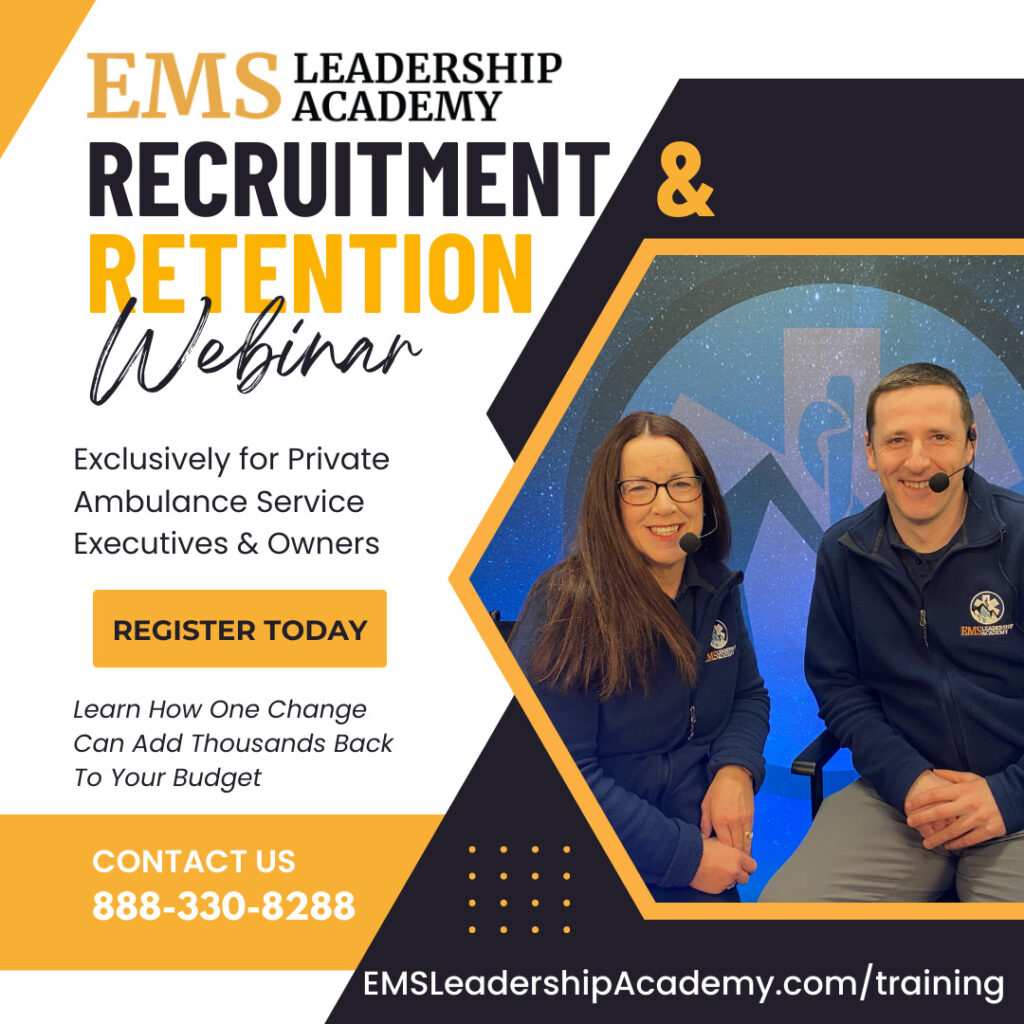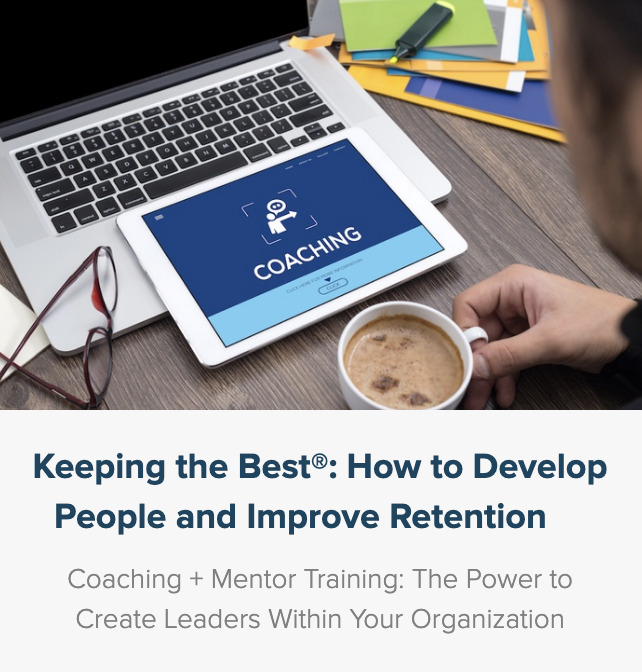#1, no one said leadership would be easy. AND it’s our goal to give EMS leaders the tools to make it easier.
That statement is really our own interpretation.
Do we really think people we don’t like are scheming to make our lives more difficult? They’re probably not giving it a second thought. If someone does something that leaves you with that interpretation, #1 try not to internalize;
What other interpretations can we try on? (People care and want to help- committed to change)
Our Influencing Without Arm Twisting Audio delivers tactical tips and strategies to help you positively influence others without manipulation or coercion.
We host an annual EMS Leadership Summit at www.EMSLeadershipSummit.com
Welcome to our EMS Q&A. And today's question. Why does it seem that people try to make things challenging for the leaders? They say, I think this is a interesting question. I mean, number one that comes to mind is nobody ever said leadership would be easy. And obviously I think it's our goal to give EMS leaders the tools for their toolbox really to make it easier on them.
But this, the statement also, I think, brings up a lot about our own interpretations of the situation and, and people's intent. Am I correct? Yeah, I think you're right. I think, you know, we can see someone coming to us with a challenge or, or a complaint or, or an issue that needs resolving and see that as a problem.
Or we can actually say, wow, this person is really committed to things being different, or we can listen differently so that we can hear what people are saying as they're trying to contribute, you know, they certainly could keep it to themselves and just, you know, grumble and, and maybe have cliques that are complaining or bringing it to your attention actually is a gift.
You know, and again, I'm not trying to put frosting on dog food. I mean, that's not what I think is helpful at all. What I think it is, is actually being willing to shift our lens on how we see people and how our perspective, and truly listen from a place of curiosity, then we can see what people are saying as maybe their way of contributing to,
to the organization. And we don't have to see it as them throwing down a gauntlet or being challenging, but actually get curious and say, well, what do you think we should do about that? Or, wow, that issue you're dealing with sounds hard. You know, what are you going to do about that, right. To allow people the opportunity to get their points across.
Absolutely. And really do we think people are trying to they're scheming and really trying to make our lives more difficult. They're probably, honestly not even giving it a second thought. So if somebody does something that leaves you with that interpretation, number one, don't try to inter don't internalize it. I know it's so hard. I, I felt challenged with this.
Myself is not to internalize people's reactions to situations or what they're saying as if it was specifically my fault. And number two, just, maybe there's different. Like you said, different interpretations. We can take on different Ways of looking at it. Another perspective perspective know. And lastly, I would say the other thing to keep in mind is, is people have been to,
to think that they're not supposed to act on their own. They're not supposed to do things themselves. They're supposed to bring it to the supervisor or the manager or the leader. Like that's how people, opinions auditioned throughout their, you know, work career, even if they're young, that's the conditioning that, that you're dealing with. So I think it's important to remember that and to have to recondition people or to help train people to,
to listen. And then again, you know, that sounds really hard. What do you think we should do about that? That will shock people into thinking for themselves and maybe coming up with some innovative and creative solutions. And I love what you said earlier. See it as an opportunity. If somebody says something that kind of maybe throws you off a little bit and wonder like,
wow, how is it really occurring for them? That, and what, what happened that that's where they actually got that interpretation from and see it as an opportunity because so often as a leader, you're so insulated, I think from different perspectives, things get filtered along the way. See, this is an opportunity to connect with people and really get where people are at.
And usually it's, it's just their own reaction to something. And maybe they just need some clarity. I think one very useful tool that I absolutely love on our website is the influence without arm twisting audio for folks that haven't heard or seen it, it's a 60 minute audio recording of a workshop or keynote that Lisa gave. I've listened to it at least 12 or 15 times.
Every time I listened to that audio, I get something else out of it. There's so many very useful tools that you can use to positively influence people around you. And it's definitely well worth the very small investment we have for it up on the website. Thank you. All right. Thanks everyone for watching.



